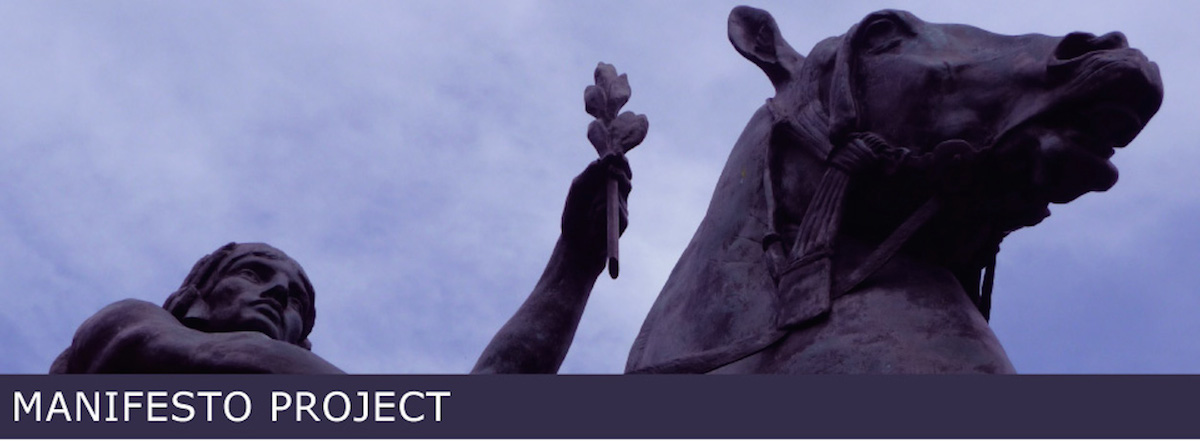Creator
The Five Pillars of Islam are an adopted set of practices and beliefs that evolved over many years. While they are alluded to in the Quran, it is believed they were not formally in place during the lifetime of the Prophet Muhammad.
Purpose
The Five Pillars are the ritual obligations for living a Muslim life. They are considered to be the duties of a Muslim.
While the Sunni and Shia agree on the essential details for the performance and practice of these acts, the Shia to do not refer to them by the same name. (Wikipedia).

Manifesto
The first pillar is Shahada or the expression and declaration of faith. This is said five times a day during prayer. Muslims recite: “There is no god but God, and Muhammad is the Messenger of God”.
The second pillar is Salat or prayer. Five times a day a Muslim faces Mecca and performs a physical type of prayer known as a prostration which involves having the forehead, nose, both hands, knees and all toes touching the ground together. The prayer includes silent or spoken versus from the Quran.
The third pillar is Zakat or alms giving to charity. Muslims give a certain amount of their income to support the Islamic community. This is a purification process that acknowledges that all things belong to God.
The fourth pillar is Sawm or fasting. Ramadam is the holy month in the Islamic calendar and is when fasting takes place. A Muslim fasts between sunrise and sunset and it includes abstaining from food, sex and smoking. The purpose is to remind Muslims that all individuals equally need the assistance of Allah.
The fifth pillar is Hajj or pilgrimage. At some point during one’s life, a Muslim is expected to travel to Mecca during the 12th month of the lunar cycle. The hajj is to express your devotion to God.
Source
https://en.wikipedia.org/wiki/Five_Pillars_of_Islam
https://en.wikipedia.org/wiki/Sujud
Comment
Religions are something you do.
This manifesto reinforces this viewpoint with a series of rituals – practices with meaning.
While the Quran is the written form of Islam, it is through these practices that Muslims are able to live their faith.
Each of the five pillars has a specific meaning that link the action to a celebration of their faith.
Notably, it starts with a five times daily declaration of your faith through Shahada. You might like to compare this to forming a daily habit – practicing it regularly builds the emotional and neurological connection.
The Five Pillars also has rituals expressed in different timeframes in different ways. For instance, Shahada is daily, Ramadam is once a year and the pilgrimage to Mecca is once in a lifetime.
